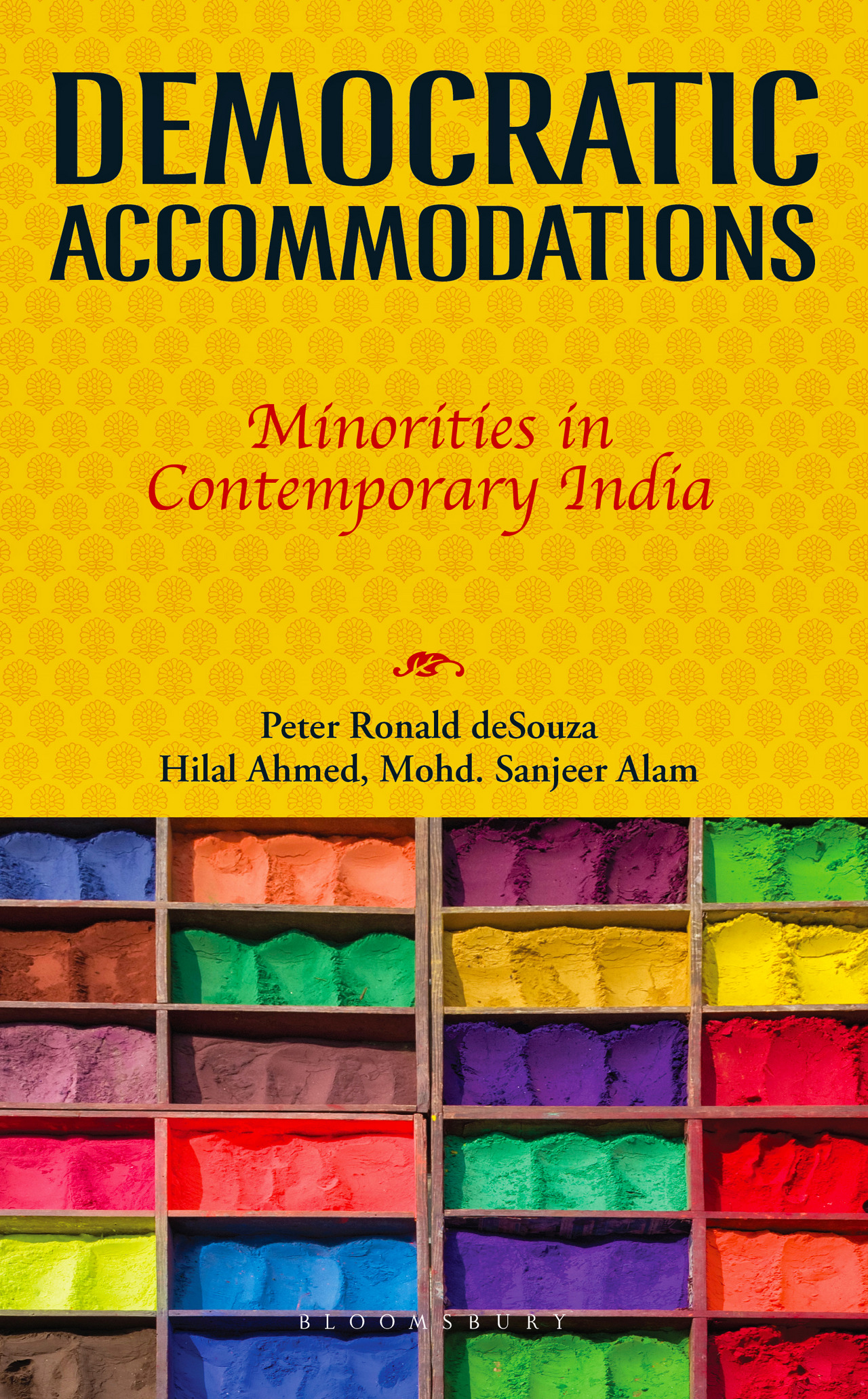
(© published by Bloomsbury)

© lcchew - stock.adobe.com
India is one of the most ethnically and culturally diverse countries in the world. Its experience in dealing with various minorities offers important insights for other countries as well, as a new study shows.
For pluralistic democracies, dealing with religious, cultural and other forms of social diversity is a central concern. Almost all societies in today's world are becoming increasingly diverse in terms of the cultural and ethnic composition of their population. This is constantly posing new and increasingly urgent challenges to governments to shape the way their societies deal with diversity.
So far, the debate on diversity and multiculturalism has focused largely on experiences in North America and Europe. The rich experiences of societies in other regions of the world have mostly been neglected. This is especially true for India, despite the fact that the country of 1.3 billion people has a particularly rich experience of dealing with the demands of its various minority groups. At the same time, however, the rise of radical Hindu nationalism also intensifies conflicts between religious groups, especially between Hindus and Muslims.
A new study by the Bertelsmann Stiftung shows that these experiences are particularly relevant for Western countries. It identifies key questions arising from Indian experience and links them to the international debate on diversity and minority rights in a democracy. The study was written by Peter Ronald deSouza, Hilal Ahmed and Mohd. Sanjeer Alam, three scholars affiliated with the Centre for the Study of Developing Societies (CSDS) in New Delhi. The book was recently published by Bloomsbury India under the title "Democratic Accommodations: Minorities in Contemporary India".
The study is a follow-up project to the Bertelsmann Stiftung's 2018 Reinhard Mohn Prize, which, under the title "Living Diversity – Shaping Society" searched for impulses on how modern societies can live in peace and freedom under conditions of increasing diversity.
A Policy of Accommodation
The book examines the treatment of cultural and religious minorities in India since independence and explores what pluralistic democracies in Europe and elsewhere can learn from Indian experiences. The authors show that the dominant response of the Indian state to minority claims was a policy of accommodation. This oscillated between a strong and active accommodation and a rather weak and passive one. According to the researchers, this political reaction has made a significant contribution to holding the huge and incredibly diverse country together, which is why they view the expansion of Hindu nationalistic activities under Prime Minster Modi’s government with great concern.
Their central thesis is therefore that a modern pluralistic democracy should accommodate claims and demands of minorities as far as possible. This is not only an imperative of political wisdom, but also of moral considerations. How such a policy of accommodation can look like in concrete terms depends on the specific social and cultural framework conditions. It is inevitably conflict-prone and always remains a balancing act between accommodation, integration and assimilation, with the aim of finding a compromise between the demands of minorities and the majority society.
The authors argue that all pluralistic democracies must develop their own strategies for dealing with minorities that correspond to the dynamics of their respective societies. At the same time, however, they also present important insights from the Indian experience that can be useful for this process. Six insights are of central importance in this context:
1. Recognition of cultural diversity. All democracies must recognise diversity as a social and political reality and accept that in a pluralistic society there are minorities with claims to recognition, rights and resources that the majority must address, even if these demands are difficult to accommodate.
2. Need for compromise solutions. Every democracy must seek an appropriate response to the demands of its minorities. Compromises between the majority society and minorities are necessary and inevitable.
3. Importance of specific institutions. For dealing with minorities, it is important to have specific institutions that respond to their demands and deal with them. Such institutions should have the greatest possible autonomy, which protects them from political influence.
4. Significance of the judiciary. Courts are of great importance for the resolution of conflicts in dealing with minority claims because they often have to find solutions or compromises as "institutions of last resort" that could not be negotiated politically.
5. Visibility of minorities. The recognition of minorities also manifests itself in their presence in the public sphere, in the media, in companies and civil society organizations. For this reason, expanding the representation of minorities in public and private institutions and organizations should be promoted.
6. Targeted support measures. The inclusion of minorities often requires targeted measures and programs that provide material and non-material support for disadvantaged social Groups.
While these insights are not a panacea for dealing with diversity in a pluralistic democracy, the differentiated analysis of India's experiences in this field presented in this book can advance the international debate on diversity and multiculturalism and help policy-makers develop their own particular strategies for dealing with minority claims.
Peter Ronald deSouza, Hilal Ahmed, Mohd. Sanjeer Alam:
Democratic Accommodations. Minorities in Contemporary India
London, New Delhi, New York, Sydney: Bloomsbury, 2019
ISBN: 9789388414562
www.bloomsbury.com/uk/democratic-accommodations-9789388414562

(© published by Bloomsbury)
